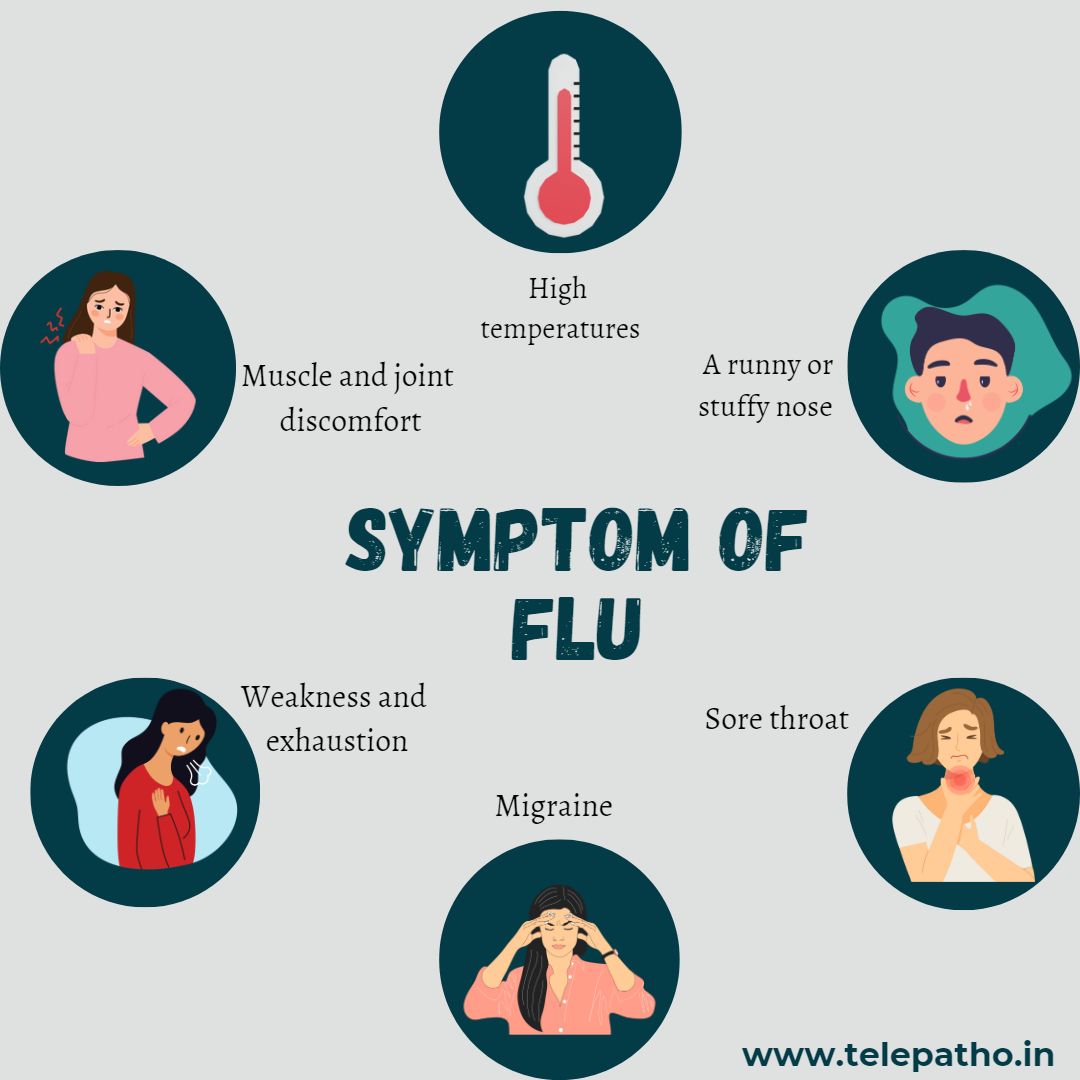
As the seasons change and temperatures fall, a considerable number of individuals find themselves dealing with pesky respiratory illnesses like the flu and the common cold. Although there are certain similarities between these two conditions, it is important to note that they are caused by different viruses and possess distinct characteristics. In this informative blog post, we will go deeper into the fundamental aspects of the flu and the common cold, providing you with a comprehensive understanding of their distinctions, symptoms, preventive measures, and potential remedies.
What is Flu?
The respiratory illness known as the flu, or influenza in short, is caused by influenza viruses. Particularly in susceptible groups including young children, elderly adults, and those with compromised immune systems, it is often more severe than the ordinary cold and may cause major problems. When an infected person coughs, sneezes, or speaks, the flu is transmitted by respiratory droplets.

Flu symptoms include: –
- High temperatures (typically more than 100°F or 38°C)
- Muscle and joint discomfort
- Weakness and exhaustion
- Sweats and chills
- Migraine
- A dry cough
- A runny or stuffy nose
- A sore throat



Prevention of Flu and the common cold- The age only saying that “Prevention is better than cure” holds in the case of the common cold and flu. Getting a yearly flu shot is the most effective approach to avoid catching the flu. Your immune system is stimulated by the vaccination to develop antibodies that defend against certain viral types. Other precautions include: –
- Frequent hand washing with soap and water or the use of hand sanitizer.
- Refraining from close contact with ill people.
- Avoid touching your face, particularly your eyes, nose, and mouth.
- Cover your mouth and nose when you cough or sneeze with a tissue or your elbow.
- Clean and disinfect commonly touched surfaces.
The best way to treat the flu is to take good care of yourself and, if necessary, seek medical attention. General advice for managing the flu includes: –
- Get plenty of rest
- Consuming fluids to stay hydrated, such as water, herbal tea, or clear soups.
- Using over-the-counter painkillers to treat muscular pains and lower temperature.
- Seeking medical advice on antiviral drugs (if given within the first 48 hours of symptom start), such as throat lozenges or warm salt water gargles.
- Gargle with warm saline water 3 times a day.
